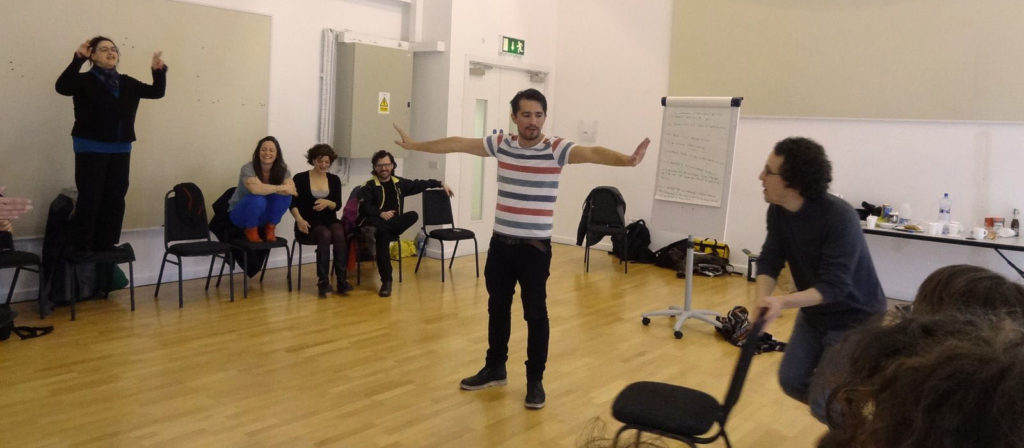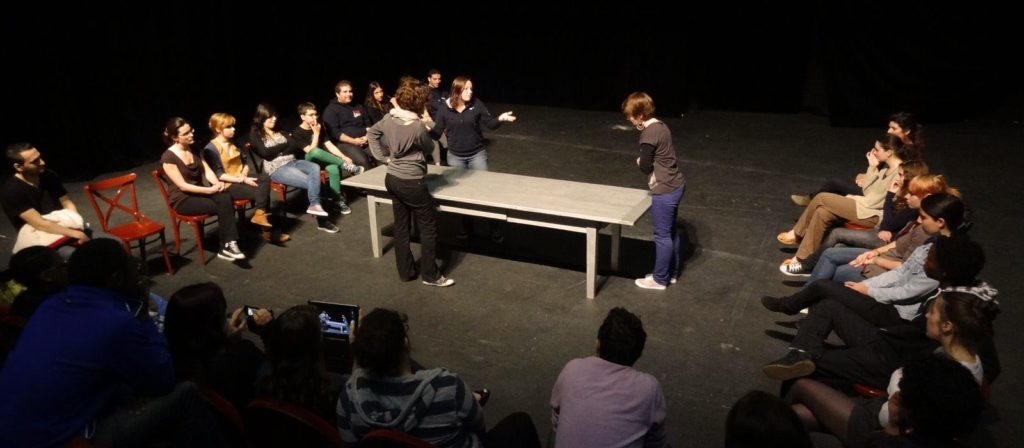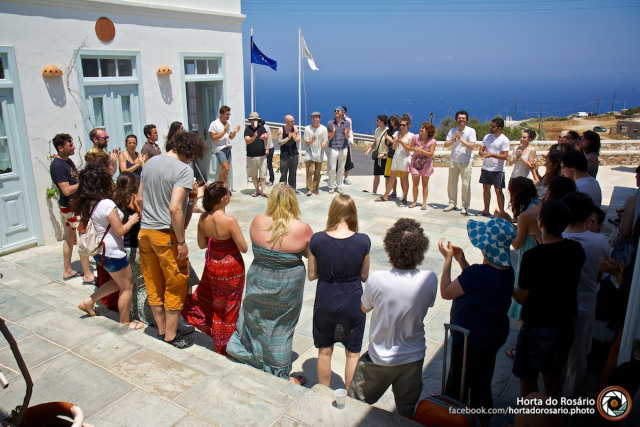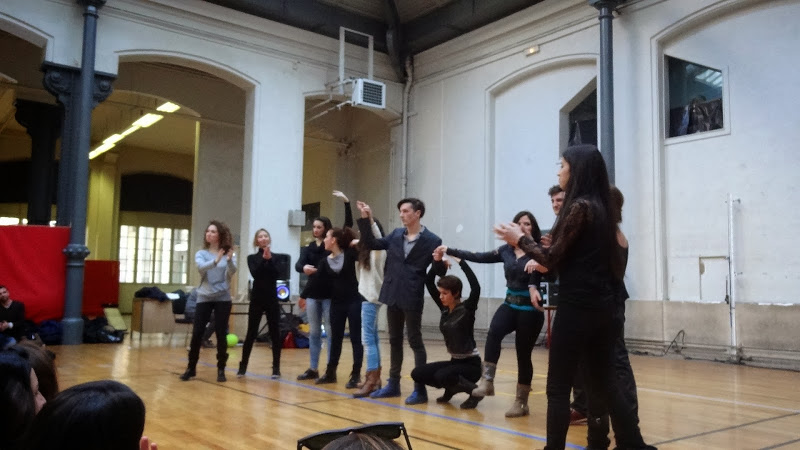New tools to question political issues through art
How to stimulate greater involvement among people in building their societies?
How to develop catalysts tools for these European whose creativity just waiting to be mobilized? Given our economies of knowledge and innovation, how to prioritize the development of this creativity, major strategic priority?
Here are some of the questions that the Polart Circle project intends to provide answers.
Since 2010, La Transplanisphère developed several European cooperation projects crossing art and politics. The partners of these experiences have exchanged their practices and co builds activity programs. They also shared their knowledge throughout workshops. Together, they became aware of their role in the field of non-formal education in relation to formal education. Some common values have been identified: autonomy and socialization, participation in social life, search for personal emancipation, the fight against exclusion.
Together, we realized the variety of methodologies conducted in Europe linking Art and Politics. We also measured we had few tools to transmit them.
In conducting our first European projects, we have taken note of these surveys who consider citizens certainly as learners but also as practitioners and creators. These are the dimensions that we want to help boost.

Formalize experiences into tools
Do we need to recall that the artistic practice plays a major role for citizens to support the raise of their identity and social integration?
Beyond the access to culture, the practice allows to gain knowledge, skills, capacity of expression and personal achievement. It allows any citizen to take his place in society as a contributor, an actor of its transformation. More prosaically, artistic practice is also going to impact its career in progress.
The time as come to create Polart Circle. The project formalizes a series of existing educational approaches toward a common tool transferable to youth. This work involves formal education entities to encourage bridges between formal and popular education. It also promotes the development of a suitable and recognized tool. By the way, the project involve an NGO representing a major European network in search of innovative teaching proposals.
To reach a large audience, a possibly facilitators and teachers, we appropriate an innovative vector of knowledge sharing: the Mooc. It seems the most contemporary to address a young audience and offer an attractive range of tools means. This in order to have an impact at European level and beyond.
Polart Circle aim is not only to disseminate innovative tools, but to create a community of users (beta testers) sharing their experiences in order to create a first base of experience and then reach a larger audience through European platforms.
The European dimension of the project is that it implements a broad partnership in 9 countries. They design their proposal inspired by experiences developed in the framework of other European projects. It allows young people to question major EU political topics, with social and citizen dimensions: a major challenge for European integration. Otherwise, it generates a multilingual tool available for all in Europe.
The first target groups are among volunteers wishing to question social and political issues through creation. The project targets students by extension, learner training, emerging artists, workers, teachers… who are looking for tools to create and propose into society.
After this first level, any group of young people may use Moocs. Groups of people with fewer opportunities are particularly concerned because of certain specific public partners. The innovative and playful nature of these tools helps to make them accessible.
We hope that Polart Circle is able to contribute to this need of empowerment for Europeans today. Beyond the inter cultural dialogue, we believe that the project creates “common” by teaching, transmission and sharing. We see a potential breeding ground for re enchant the people of Europe in their relation to politics. And perhaps to trigger more inspiration and creativity within the European project?

a pedagogical framework
In order to define the pedagogical framework for the intellectual outputs — the Moocs —, the partners compared their practical experience to some existing works available on several european platforms (Erasmus+, Salto Youth toolbox, EACEA …).
They totally assume variety of propositions that are finally be presented in the Moocs published, but they want to explore this diversity in the frame of a common agreement of certain values.
A few values for/from the participants
About the relation to the participants to the project, partners want to put the stress on the necessity of being volunteers, motivated and fully involved in the experience. It’s the most appropriate way to reach quality and creativity. It provides a real space for learning and create something the participants will be proud of, and that will strengthen them for future projects.
The experience has to involve and valorize the personal experience of every participant. This has an important impact on everyone transformation.
This is linked to the partners will to make every participant an actor of its own training and its own life. The participants are invited to be active contributors to the experience. The Polart Circle process wishes to allow initiatives from participants (from the design of the Mooc itself to the final users). It’s about being responsible, pro active, inspired, confident in one’s capacity to create.
A few values for the project
Polart circle wishes to stimulate active citizenship by making aware of stakes like multiculturalism, gender equality or sustainable development. Through creative process, we want engage people in their own will to learn, feeding their own volunteer or professional path. The project also would like to support the development of critical thinking, and to stimulate social transformation through education and creation.
Elements of Methodology
– to promote group work process
– to propose practical situations that triggers personal expression
– to encourage active participation at every moment of the process
– to develop mobilities of the participants through the experience
– to involve new technologies
– to foster interpersonal and intergenerational relationships
– to use concrete pedagogical approaches and tools
– active participation in the design of the intellectual outputs
Evaluation tools
– Creating conditions for self evaluation (associated to youthpass)
– Evaluation not on the creative result but on the training process itself
– Definition of training evaluation together with the participants at the beginning of the process
– Stimulation of the cross evaluation and feedbacks of the european particpants through the web platform.

an estimative Program for the 3 seasons: Moocs and trainings
During the Polart Circle experience, the co organizers collaborates to present several methodologies formalising artistic creation processes, associating art and politics.
Those methodologies are presented through Moocs (massive open online courses).
Then, those Moocs are spread at a European scale through an internet platform and events promoting them.
In order to structure the courses, Polart Circle wants to consider each year (as seasons) through the angle of one discipline. Year one is focused on writing, year two on designing/staging, year three on performing.
For every season, 6 Moocs will be published.
Another important aspects of those Moocs is that the design and shooting of them is associated with 2 trainees send by the co organizers. This practical experience train them with common and specific skills. This dimension is also described below.
The first year, those trainees are selected among the close groups working with the co organizers. On year two and three, they will be selected from an open call addressed to the community of users of the Mooc. The selection process will be connected to the evaluation by the pairs of the works made by the users: the co organizers wishes to stimulate the best contributions from the users in offering them the opportunity to involve them more in participating to the training phase of the next season.
diversity of approaches throughout Europe
They are many ways to consider the relation between art, politics, writing, staging and acting. This project even includes ways that does not involve any stage (like public space performance for example) or any performer (like an installation).
The aim of the project is not to determine one approach as the best one, but to offer a cooperation space allowing many different perspectives to be confronted and debated at a european scale, and available for any group of learners in Europe.
The final outputs (Moocs published) reflect the diversity of approaches throughout Europe. It allows the public to explore this diversity in experimenting the proposals through the Moocs.[:]


